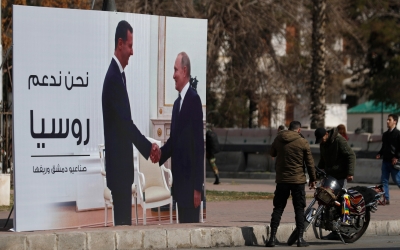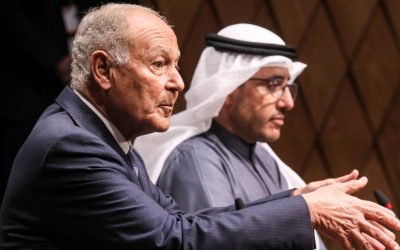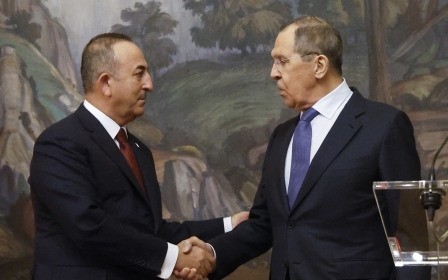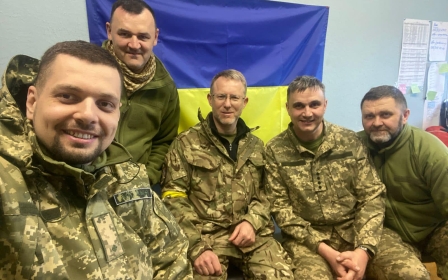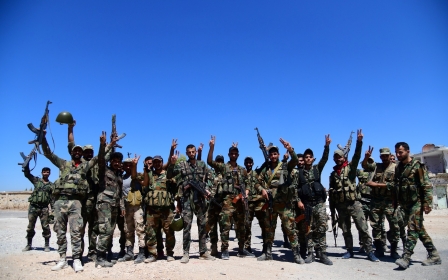Russia's invasion of Ukraine poses problems for Syria's Assad, experts say
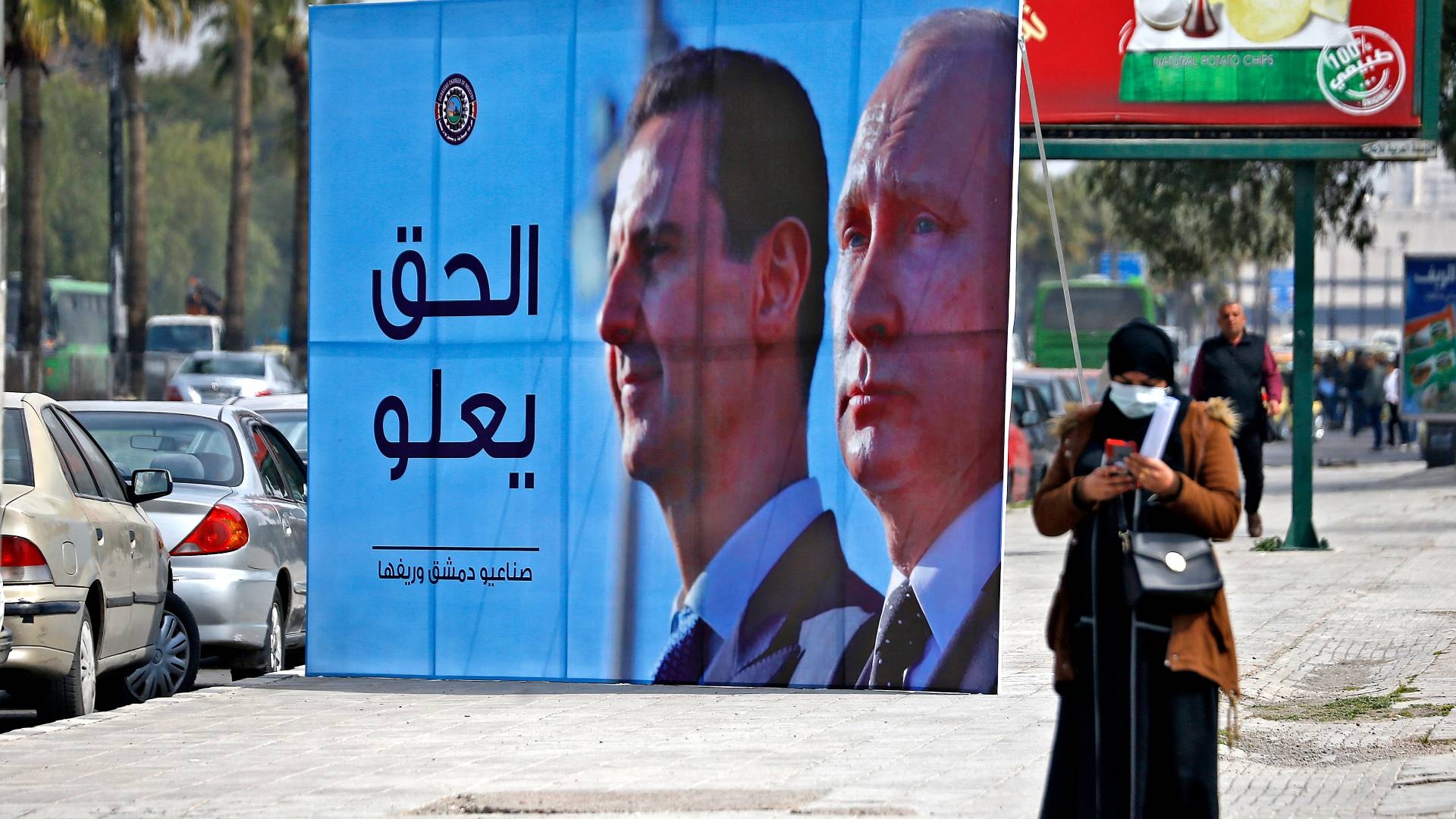
Russia's invasion of Ukraine could cause a series of political and economic concerns for its close ally Syria, as Damascus attempts to rebuild the country after eleven years of devastating conflict, experts said on Thursday.
As Russia pushes on with its relentless bombing campaign, Damascus has done more than toe the proverbial Kremlin line - it has shown complete solidarity with its superpower patron.
Syria was one of the first countries to recognise the breakaway provinces of Donetsk and Luhansk in Ukraine, and was one of just five countries to vote alongside Moscow at a United Nations meeting on the situation there.
Since then, reports have emerged that Russian President Vladimir Putin is planning to use thousands of Syrian fighters in military operations in Ukraine, as Russia forces face stiffer opposition than Moscow expected.
But with Russia facing economic isolation, experts have warned that Syrian President Bashar al-Assad's task of rebuilding the country will be seriously impeded.
"What happens to the prospect of even a long-term peaceful settlement in Syria if you have a Russia that is not any more able to talk to the western countries, in particular the US?" Sinan Ulgen, visiting scholar at Carnegie Europe in Brussels, asked during a panel discussion hosted by the Carnegie Endowment for International Peace.
"I tend to believe that it will unfortunately have a very negative impact on the prospect of a peaceful settlement or lasting settlement for Syria."
The European Union has been leading humanitarian assistance to Syria, having mobilised more than $25bn since 2011 and having organised five annual donor conferences since 2017. In 2021, the bloc sent more than $150m in humanitarian aid to the country.
However, with the influx of more than three million Ukrainian refugees to EU countries, aid given to Syria may face renewed competition for resources.
"Humanitarian aid represents a significant part of the currency that enters and feeds the economy, but the monetary aid is going to drop significantly because the EU is going to focus on Ukrainian refugees," said Jihad Yazigi, founder and editor of the Syria Report.
According to Yazigi, the Syrian pound has dropped from 3,500 to 4,000 against the dollar on the black market. The official exchange rate is fixed at 434 to the greenback. Before the civil war broke out in 2011, the rate stood at 47 pounds to the dollar.
Russian power projection in Syria
Russia intervened militarily in Syria's civil war in September 2015, and its superior air power helped turn the tide for Assad, who had been struggling against a rebel opposition movement and the rise of the Islamic State (IS) group.
The intervention helped Russia display its military power to the west, as well as its ability to quickly change dynamics on the ground.
But as Russia focuses its attention on Ukraine, its ability to maintain its strategic presence in Syria, as well as the Mediterranean sea, could be at risk, according to Ulgen - who is also a former diplomat and chairs the Istanbul-based Center for Economic and Foreign Policy Studies.
'The Black Sea fleet, including the submarines, were being used by Russia for power projection to Syria... That link is now broken'
- Sinan Ulgen, visiting fellow at Carnegie Europe
Earlier this month, Turkey invoked the 1936 Montreux Doctrine to close its Bosphorus and Dardanelles straits to limit the passage of Russian warships coming and going between the Mediterranean and Black seas.
While the move has not affected Russian ships attempting to cross from the Mediterranean to the Black Sea to return to their home ports, it could have implications for Moscow's naval presence in Syria.
Russia has been in control of a large naval base in the city of Tartus in Syria, the only Russian naval base on the Mediterranean coast.
"Once the Russian warships cross the straits, they are stuck in the Black Sea. They cannot go back to the Mediterranean, which is going to be a major hindrance for Russian logistical efforts and power projection ability in Syria," Ulgen said.
"What we've seen in the past is that the Black Sea fleet, including the submarines, were being used by Russia for power projection to Syria and also for some logistical purposes. That link is now broken."
Wait-and-see on normalisation efforts
The Russian invasion has also appeared to have hampered - at least for now - efforts aimed at normalising relations with Assad's government.
Late last year, a number of Arab countries had been looking to establish diplomatic and economic ties with Syria - nearly a decade after it was expelled from the Arab League for its violent response to the 2011 uprising.
Jordan's King Abdullah received a phone call from Assad in October, and has since lobbied for sanctions relief in Washington so Amman's fragile economy can resume trade with Syria. Meanwhile, the United Arab Emirates' foreign minister took a visit to Syria a month later, where he discussed potential investments in reconstruction.
Even the US, which maintains it will never normalise relations with Assad, has found itself in the awkward position of approving cooperation between Arab states and Syria in a deal that would see Egyptian natural gas travel to Lebanon via the Arab Gas Pipeline, which crosses through Syria.
"We're seeing a bit of a pivot away from this normalisation narrative that was starting to get a bit of traction," said Emma Beals, non-resident scholar at the Middle East Institute and a consultant for the European Institute of Peace.
However, Beals noted that the approach in the rest of the Middle East, particularly Syria's neighbours and the UAE, was "wait-and-see".
"There is likely to be a changing approach from the region as they begin to balance fears of destabilisation due to the fallout of Ukraine and what they perceive to be likely Western disinterest or withdrawal [from Syria].
"But that will have to be balanced by the fact that being closer to Russia and the regime has never been more unpopular."
Middle East Eye propose une couverture et une analyse indépendantes et incomparables du Moyen-Orient, de l’Afrique du Nord et d’autres régions du monde. Pour en savoir plus sur la reprise de ce contenu et les frais qui s’appliquent, veuillez remplir ce formulaire [en anglais]. Pour en savoir plus sur MEE, cliquez ici [en anglais].


